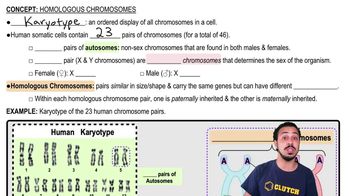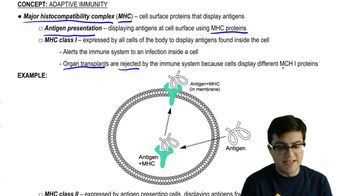An epitope associates with which part of an antigen receptor or antibody?
a. The tail
b. The heavy-chain constant regions only
c. Variable regions of a heavy chain and light chain combined
d. The light-chain constant regions only

 Verified step by step guidance
Verified step by step guidance



An epitope associates with which part of an antigen receptor or antibody?
a. The tail
b. The heavy-chain constant regions only
c. Variable regions of a heavy chain and light chain combined
d. The light-chain constant regions only
Which statement best describes the difference between responses of effector B cells (plasma cells) and those of cytotoxic T cells?
a. B cells confer active immunity; cytotoxic T cells confer passive immunity.
b. B cells respond the first time a pathogen is present; cytotoxic T cells respond subsequent times.
c. B cells secrete antibodies against a pathogen; cytotoxic T cells kill pathogen-infected host cells.
d. B cells carry out the cell-mediated response; cytotoxic T cells carry out the humoral response.
Which of the following statements is true?
a. An antibody has one antigen-binding site
b. A lymphocyte has receptors for a single antigen
c. Every antigen has a single epitope
d. A liver or muscle cell makes two classes of MHC molecule